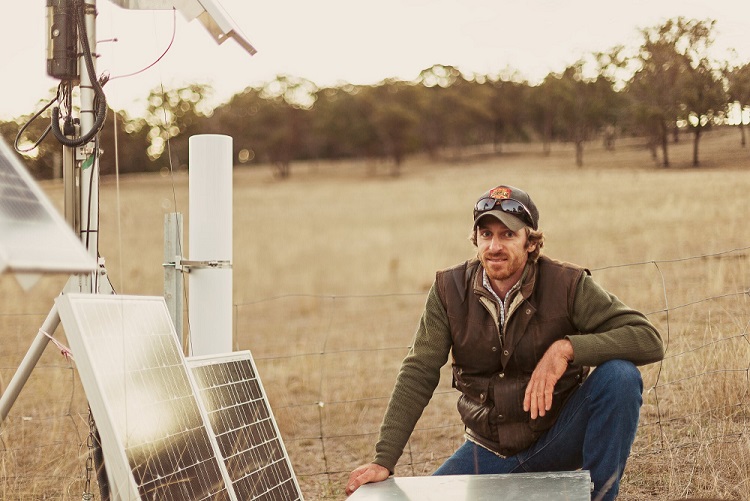SMART Farms Telemetry Hub Process
This page outlines the protocol for implementing and engaging with the SMART Farms Telemetry HUB (SFTH) at UNE.
The SMART farms telemetry hub is an open telemetry bus, coupled with databases, processing and data visualisation capability. It enables the collection, storage and visualisation of research data and ensures access to research data collected by UNE researchers and projects. It has been designed to comply with UNE data storage requirements and facilitate machine-to-machine data handling, when required. Although it is named the SFTH we are open to helping researchers from any discipline area or service unit.
The steps are:
1. Researcher develops research question or data provision need
2. Researcher engages SFTH team
Please contact a member of the core team ASAP for ideas and feedback. Core team consists of Derek Schneider and Daniel Watkins. We will arrange a meeting to discuss the ways we can help you:
- Solutions; including existing architecture, third-party providers and sensors requirements.
- Data sharing; provision and visibility requirements will be settled upon. The data sharing plan and openness needs to be identified, i.e. can the data be shared publicly, and for how long will the data need to be stored.
- Indicative budget; Budget considerations include but are not limited to: device costs, SFTH staff member time, third party applications, telemetry protocol license fees, subscription costs, connectivity plans, device engineering and deployment costs.
3. Researcher applies for grant through the existing Faculty processes
This includes the submission of a Project Approval Form (PAF).
4. Subject to project approval; purchase, prototyping, construction and installation of data collecting and forwarding devices can commence
- If animals are being used in the project then an animal ethics application should be submitted. Anyone who will need to be in direct contact with the animals or on the site where the animals are housed, to implement the data collection, should be included on the application.
- Anyone accessing the UNE SMART Farms should complete the relevant induction
- If SFTH, other UNE staff or students need to access commercial partner facilities or properties to perform installation then introduction/induction should also be arranged.
5. Data feeds are plumbed into the relevant databases, dashboards or APIs through the telemetry hub
Data transmission can be through all kinds of established networks e.g. WiFi, LoRa, SigFox, Taggle etc in Message Queuing Telemetry Transport (MQTT) protocol or other depending on availability and researcher requirements
6. Access is granted to the relevant researcher / research team or teaching unit
Data provision may be through access to UNE Oracle database through Open Data Base Connectivity (ODBC) and the programming language of the researcher’s choice or through prior arrangement of data dumps to .csv for example. Another method of data provision could be the development of a bespoke dashboard or alert system.
7. Build applications on the data; if required
Often researchers or HDR students will want to create and deploy scripts on the telemetry hub to process/handle/analyse data. Scripts are often developed on researchers local machines. These applications can be linked back or deployed on the SFTH if the storage of the output is imperative, a metric that triggers an alert is generated or if processed data is to be visualised on the dashboard. Those researchers or HDR students without the relevant coding/programming experience required to develop an application, or time to learn, can request support from groups such as UNE CASI (contact Johan Boshoff).
8. Data cataloguing and FAIR assessment
Some datasets will need to be catalogued, and in reality all should be, to meet our requirements under the Code of Conduct of Research Rule and Management and Storage of Research Data and Materials Policy. Step 1 is the acquisition of an ISBN for the data set. The data needs to be described and it needs to listed on Research UNE. A Findable, Accessible, Interoperable and Reusable (FAIR) assessment is then performed and work done to improve the rating of the data set. This will include the use of data descriptors, creation of APIs, and documentation thereof. Support for questions about managing and storing data, including advice about creating a data management plan is provided by The Research Advisory and Engagement Services Group in the UNE Library.

Image: Dez with weather station at Kirby

